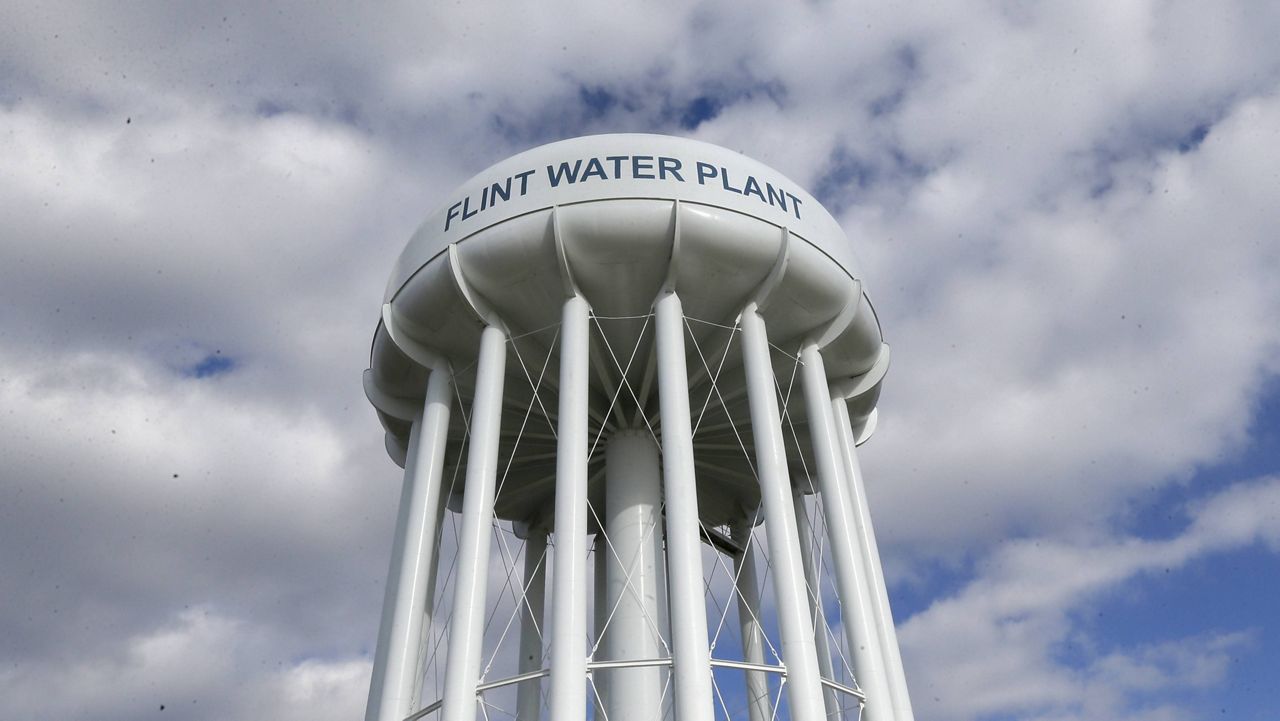FLINT, Mich. — The state of Michigan has agreed to pay $600 million to settle lawsuits stemming from the crisis that left Flint residents with contaminated drinking water.
The proposed deal announced Thursday requires approval from U.S. District Judge Judith Levy, who is overseeing lawsuits against the state.
In an April 2014 cost-cutting move, the state shifted the water source in Flint from the city of Detroit to the Flint River. Soon after, residents complained that the water flowing into their homes was discolored and tasted and smelled foul. They blamed it for rashes, hair loss and other conditions.
In 2015, the Environmental Protection Agency said it had found dangerous levels of lead in the water, which can affect the heart, kidneys, brain and nervous system. Children are especially vulnerable to its toxic effects.
“The residents of Flint were victims of horrendous decisions by the state, its employees, and other defendants that have resulted in tragic and devastating consequences," Ted Leopold, one of the attorneys appointed by Levy to lead the class-action lawsuit, said, according to the Detroit Free Press.
"While we can never undo the damage that occurred to the citizens and community of Flint, we are pleased that today we were able to secure a measure of justice for the ... Flint community,” Leopold added.
Under the preliminary settlement, Flint residents will be eligible for hundreds of millions of dollars in payments from a victim compensation fund, with 80% of that money going to those who were 18 or younger at the time of the crisis.
A fund also will be established to provide special education for students who suffer long-term health and behavioral impacts from lead poisoning. Flint businesses are also eligible for compensation under the agreement.
The defendants listed on the settlement include the state of Michigan, the state Department of Environmental Quality and former Gov. Rick Snyder, who was in office when the decision to change the water supply was made.
Litigation will continue against the U.S. Environmental Protection Agency and private firms involved in the water switch.
While acknowledging the settlement "may not completely provide all that Flint needs,” current Gov. Gretchen Whitmer said in a statement Thursday that Michigan is trying to atone for its mistakes.
"What happened in Flint should have never happened, and financial compensation with this settlement is just one of the many ways we can continue to show our support for the city of Flint and its families," she said.
"We hear and respect those voices and understand that healing Flint will take a long time. ... The uncertainty and troubles that the people of Flint have endured is unconscionable," Whitmer continued. "It is time for the State to do what it can and take this critical step forward so that we can keep working towards the brighter future that the people of Flint and our entire state deserve."
If approved, the settlement would push state spending on the Flint water crisis over $1 billion. Michigan already has pumped more than $400 million into replacing water pipes, purchasing filters and bottled water, children’s health care and other assistance.
Residents used bottled water for drinking and household needs for more than a year. Researchers said in late 2016 that lead was no longer detectable in many homes.
The Associated Press contributed to this report.










